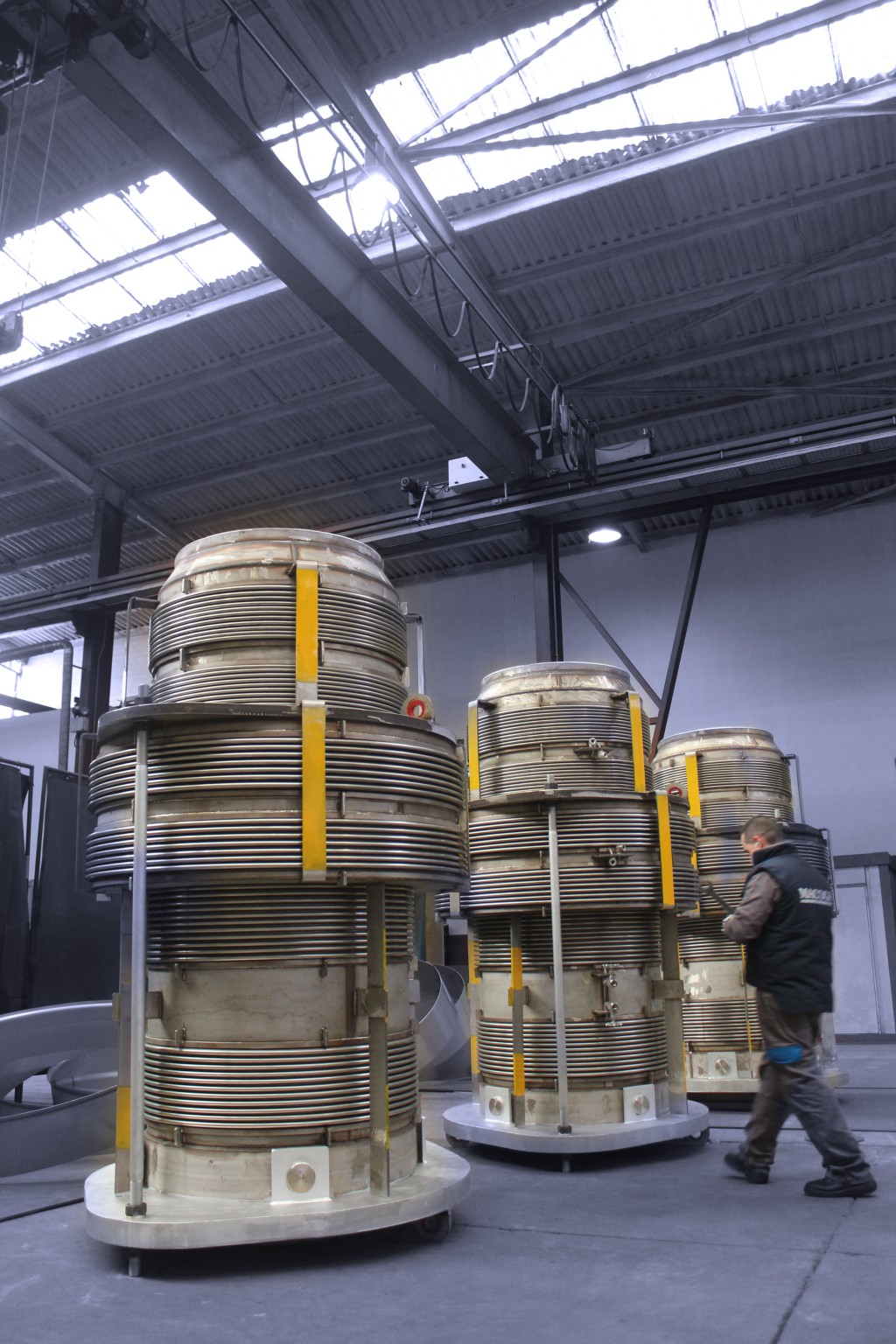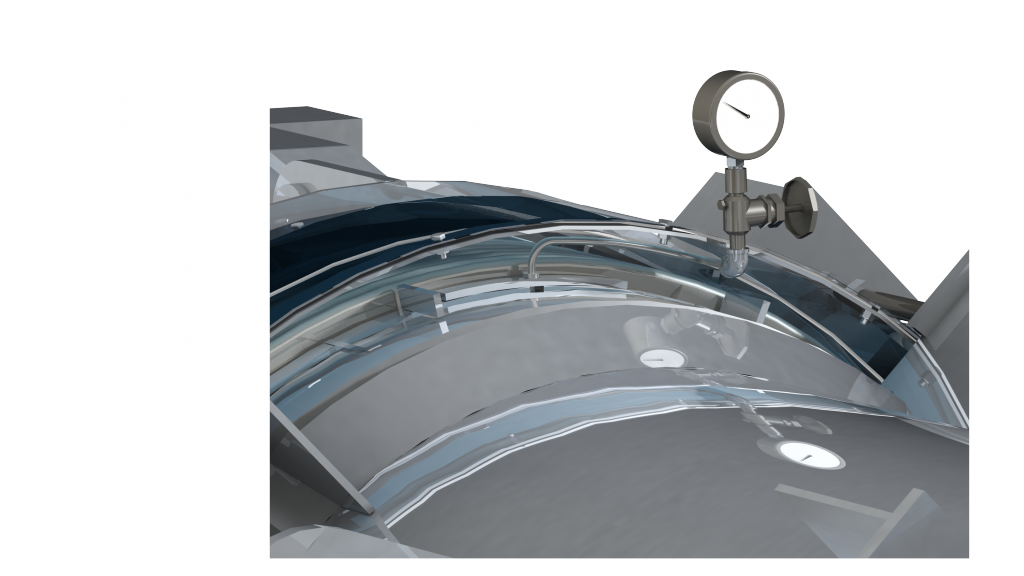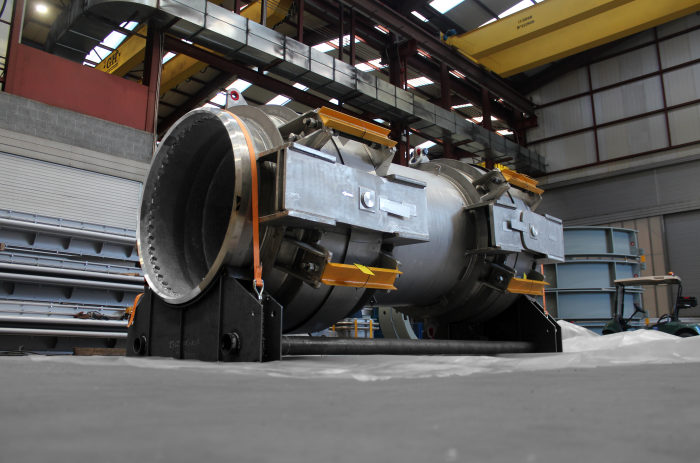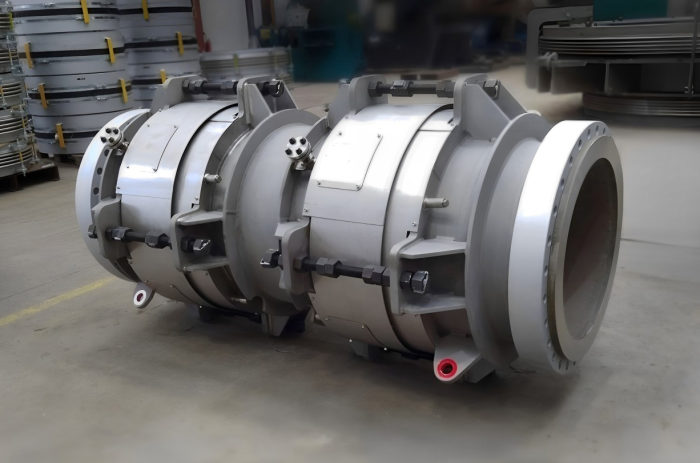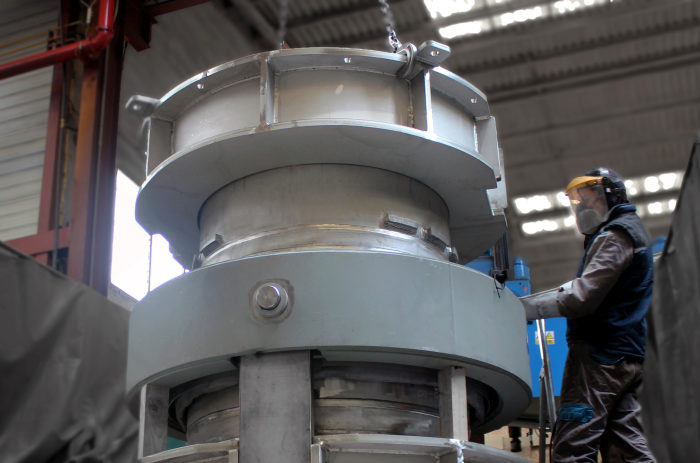
FCCU Pressure Balanced Expansion Joints for European Refinery
MACOGA has successfully designed, manufactured and tested eight In-Line Pressure Balanced FCCU Expansion Joints for a refinery located in the north of Europe.
The Expansion Joints incorporate:
The Expansion Joints are designed for pressures of 5.5 bar and temperatures a temperature of 500 °C for the bellows and 700 °C for the medium.
A pressure balanced expansion joint accommodates axial and lateral movements and counteracts the bellows pressure thrust. An additional bellows is incorporated into the unit and is subject to the line pressure to generate a force equal and opposite to that on the main bellows. Tying these bellows together neutralises the pressure load on the unit.
MACOGA offers its customers in the oil and gas, refinery and petrochemical industries a complete field service package. We provide a professional variety of site services including assembly, supervision of installation and inspection that minimize risks of unplanned shutdowns and help to avoid failures and breakdowns.
The Expansion Joints incorporate:
- 2 ply testable & packed Bellows in ASTM B443 Inconel 625 LCF
- Internal and external Super Wool Plus insulation
- Hexagonal Mesh, sealing anchors and sealing rope
- Refractory lining Calde Stix PB85 C/G
The Expansion Joints are designed for pressures of 5.5 bar and temperatures a temperature of 500 °C for the bellows and 700 °C for the medium.
A pressure balanced expansion joint accommodates axial and lateral movements and counteracts the bellows pressure thrust. An additional bellows is incorporated into the unit and is subject to the line pressure to generate a force equal and opposite to that on the main bellows. Tying these bellows together neutralises the pressure load on the unit.
MACOGA offers its customers in the oil and gas, refinery and petrochemical industries a complete field service package. We provide a professional variety of site services including assembly, supervision of installation and inspection that minimize risks of unplanned shutdowns and help to avoid failures and breakdowns.

